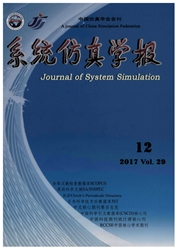

 中文摘要:
中文摘要:
水声通信中的多普勒(Doppler)频移和水声信道的时变性等因素影响着载波跟踪效果,最终使得接收机性能下降。常规差分相干检测技术能为PSK调制提供天然的载波同步但抗码间干扰能力很差且当载波偏移较大时的性能也受到很大影响。针对这一问题,提出了一种自适应差分相干检测算法及其相位补偿方法.该算法将线性均衡器和差分相干检测器有机结合,降低了检测的均方误差并成功地抑制了多径的影响.利用一种新的相位补偿方法对均衡前的信号先进行相位补偿,跟踪信道引起的相位变化,进一步提高了系统抗载波频偏的能力。在实际湖试信道条件下的4DPSK性能仿真表明:在10Km的距离上,应用常规的相干检测算法无法对存在标准频率偏移在0.01以上的情况进行正确检测,但自适应差分相干检测算法经过相位补偿后,处理存在大频偏(标准频率偏移在0.02到0.04之间)的情况时,同样误码率下比原来节省2~4dB的信噪比。
 英文摘要:
英文摘要:
In underwater acoustic communication, carrier tracking is adversely affected by Doppler and time-variation of the channel, which causes bad performance of the receiver. Differentially coherent detection based on the premise that there is no intersymbol interference (ISI) and the bad performance is produced when cartier frequency shift is enormous. In order to solve this problem, an adaptive differentially coherent detection (ADCD) algorithm and its phase compensation were proposed In the proposed algorithm, a linear equalizer and a differentially coherent detector were combined to reduce the mean squared error (MSE) of the detection. A new way for phase compensation was proposed to track the variation of the signal phase and improve the performance to resist the carrier frequency shift. 4DPSK simulation tests were conducted using 10km real underwater acoustic channel. Results show that conventional coherent detection (CD) algorithm can get right decision, only when the normalized frequency shift is less than 0.01. However, the needed input signal noise ratio (SNR) is 2-4dB less than ADCD, when the proposed phase compensation is used in ADCD, the condition of the normalized frequency shift is 0.02-0.04.
 同期刊论文项目
同期刊论文项目
 同项目期刊论文
同项目期刊论文
 An Adaptive Differentially Coherent Detection and Phase Compensation Algorithm in Underwater Acousti
An Adaptive Differentially Coherent Detection and Phase Compensation Algorithm in Underwater Acousti Real-time Parallel Processing System Design and Implementation for Underwater Acoustic Communication
Real-time Parallel Processing System Design and Implementation for Underwater Acoustic Communication 期刊信息
期刊信息
